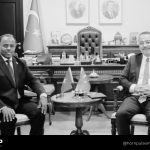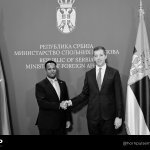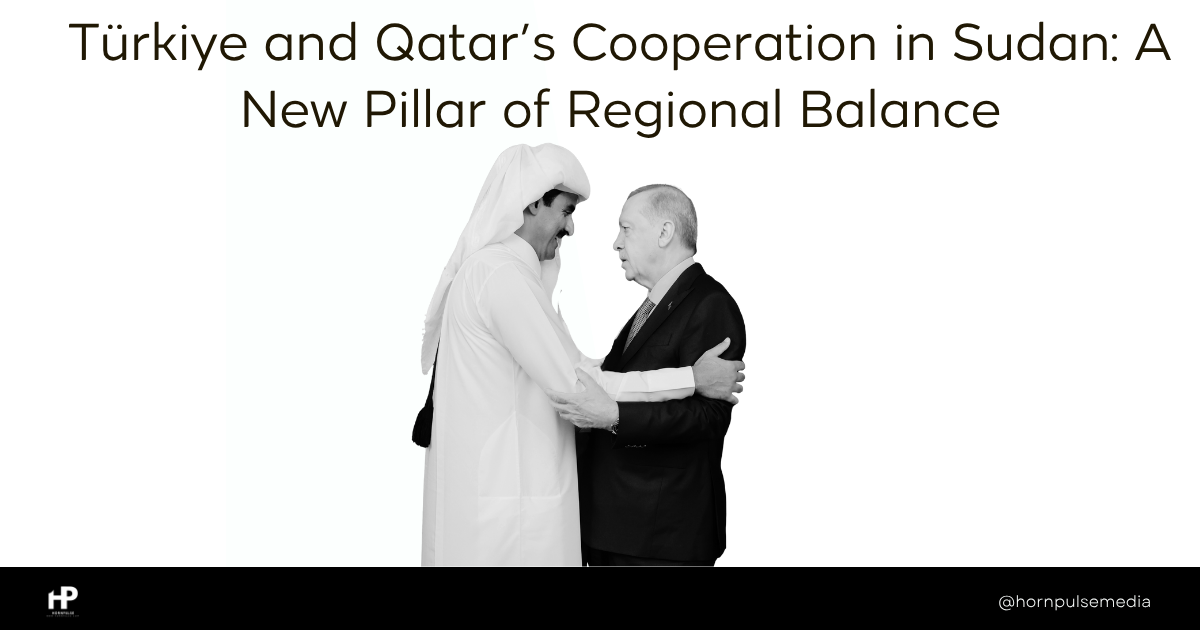
Türkiye and Somalia Hold High-Level Talks on Bilateral Ties and Regional Developments
September 2, 2025
Serbia and Somalia Foreign Ministers Pledge Stronger Ties
September 2, 2025For nearly two decades, Qatar has positioned itself as one of the world’s most effective mediators, adept at navigating intractable conflicts and brokering fragile peace agreements. From Darfur to Doha to the Democratic Republic of Congo, Doha’s diplomatic footprint has grown steadily, granting the Gulf state a reputation as both credible and pragmatic.
Now, as Sudan sinks deeper into its devastating civil war, Qatar is once again emerging as a potential broker — this time in a conflict where regional initiatives have faltered and international consensus remains elusive.
A Track Record of Mediation
Qatar’s engagement in Sudan is not new. In 2003, Doha hosted negotiations between Khartoum and Darfur rebel groups, resulting in partial reconciliation agreements. This early involvement foreshadowed Qatar’s global mediation ambitions.
The Gulf state’s most high-profile success came in Afghanistan, where it hosted years of talks between the United States and the Taliban, culminating in the 2020 Doha Agreement that paved the way for U.S. troop withdrawal. More recently, Qatar presented a peace draft aimed at resolving hostilities between the Democratic Republic of Congo and the Rwanda-backed M23 rebels.
In the Middle East, Qatar has acted as a key mediator between Hamas and Israel — facilitating ceasefires, delivering humanitarian aid to Gaza, and serving as a discreet communication channel with international stakeholders. This ability to engage polarized actors without losing credibility has strengthened its image as a trusted intermediary.
Why Sudan Needs Doha
The Sudanese peace process has faltered. The U.S.–Saudi-led Jeddah talks stalled, as Egypt, the UAE, and other regional players pursued conflicting agendas. Into this vacuum, Qatar appears poised to step back in.
This was underscored by a recent closed-door meeting in Switzerland between General Abdel Fattah al-Burhan, Chairman of Sudan’s Sovereign Council, and U.S. Special Envoy Massad Boulos. According to sources, the discussions centered on a U.S.-backed plan to end the two-year war, secure a nationwide ceasefire, and ensure humanitarian access.
While the meeting produced no breakthrough, it marked the highest-level engagement between Washington and Khartoum in months. Crucially, it also signaled Washington’s willingness to work with Qatar as a mediator acceptable to both the Sudanese Armed Forces and the U.S. — in contrast to the stagnation of the Jeddah process.
The Roadblocks Ahead
Al-Burhan has drawn a red line: no integration of the Rapid Support Forces (RSF) into a future political settlement. While this hardline position bolsters his domestic legitimacy, it poses a major obstacle for mediators, many of whom insist on placing the army and RSF on equal footing. Critics argue that this approach has only prolonged the war.
The U.S., meanwhile, is prioritizing humanitarian imperatives. Envoy Boulos emphasized the urgency of ceasefires and aid delivery, suggesting that Washington currently views humanitarian relief as more urgent than political engineering.
Qatar’s Strategic Advantage
Qatar’s history of flexible diplomacy, its ability to engage across divides, and its international credibility position it as a unique actor in Sudan’s crisis. Unlike regional powers such as Egypt or the UAE, whose involvement is seen as partisan, Doha retains a degree of neutrality.
Doha’s approach — combining humanitarian engagement with political dialogue — may offer a framework for reviving talks and rebuilding trust. With its experience in Afghanistan, Gaza, and even Angola, Qatar has shown it can host processes that others could not.
A Narrow but Viable Path
The Swiss meeting did not end Sudan’s war, but it repositioned the crisis on the international agenda and reaffirmed U.S. interest in pursuing a settlement. Going forward, Sudan’s peace process will hinge on three factors:
- the army’s willingness to compromise,
- the future of the RSF, and
- the ability of mediators — especially Qatar — to build a more inclusive, credible negotiation framework.
For Sudan, embracing U.S.–Qatar mediation may represent the most viable path out of war. For Qatar, it would be another step in consolidating its role as the Middle East’s small but indispensable peacemaker.


